Most of us struggle to choose which book to read next. Either we've run out of recommendations, or our "read" list leaves us spoiled. And since time is so short, we don't want to risk spending any of it on a book that is less than par.
This article details a multi-volume collection of works known as The Harvard Classics , Now you can download completely free of charge. These were meticulously compiled by Charles W. Eliot in the early 20th century, offering some of the best literature in the Western world.
We've also included links to where you can download these works, along with helpful pointers to reading them on your eReader, tablet, or digital device.
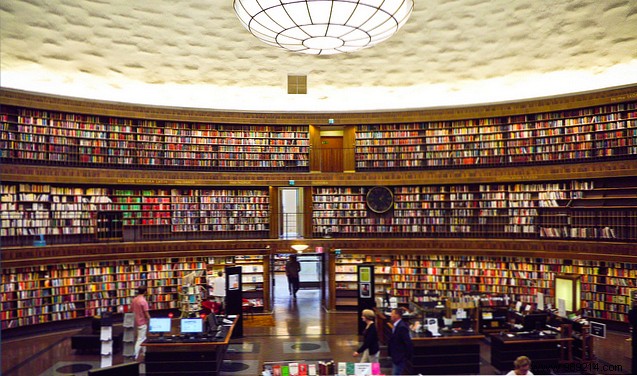
I am currently sitting in a three-story circular library, surrounded by thousands of feet of books, and there is a great feeling of being overwhelmed hanging in the air. The goal of trying to read just 1 percent of these books in a lifetime is sadly unattainable. Even the idea that we can devote our lives to consuming the numerous "classics," is almost as useless.
Faced with this staggering choice of what to read next and, equally important, what not To read, they often turn to corruptible and affordable best-seller lists. But as we should all know by now, the correlation between the number of books sold and the literary, even canonical, status of a book is dubious.
There's a reason why, in his incredibly pragmatic book, How to Talk About Books You Haven't Read , Pierre Bayard "advocates redefining our culture's reading expectations, away from the linear, the absolutist, and the overtly comprehensive, and toward the nonlinear, the relativistic, the selective." (Maria Popova).
When we understand the importance of accepting that we can't read even a fraction of the books we aspire to consume, the question becomes, “so which books should I read ?”. After all, time is ticking. Being ruthlessly selective indecisive? Do you make the right choices with these indecisive apps? Make the right decisions with these apps Have you heard of the paradox of choice? If you're like me and suffer from analysis paralysis, these apps will change your life. Read More Fortunately, Charles W. Eliot worked tirelessly to rescue us from this dilemma.
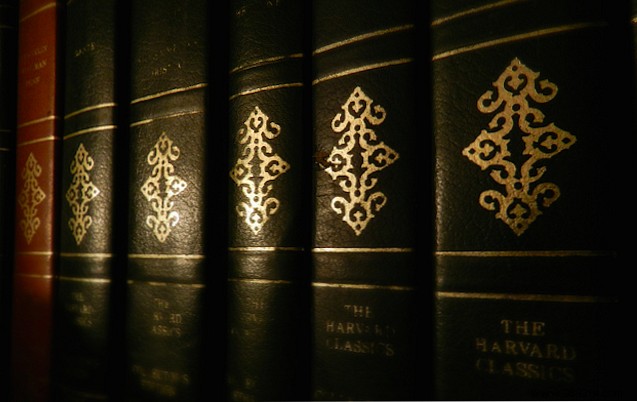
Charles W. Eliot (1834-1926) was an American academic who would become Harvard's longest serving president. During his dynamic career, Eliot also edited a powerful collection of classic literature entitled The Harvard Classics (first published 1909). Taking up 5 feet of bookshelf in print, this multi-volume collection soon became a classic in its own right. This is a collection that the Bartleby website describes as "The most comprehensive and well-researched anthology of all time."
In the Editor's Introduction to vol. 50, explains Eliot:
This idea of a "cultured man" (or woman) is central to many people's desire to read. A choice in the book is often made by virtue of whether it will shed light on a certain aspect of life. If it teaches us something about the human condition. If it will help us understand our place in the world. Each of the selections in the 22,000 pages of Harvard Classics It has been selected because it fits this ideal.
In a speech Eliot gave to a group of workers, he declared that a 5-foot bookcase could be "A good substitute for a liberal education." Adam Kirsch adds; “Harvard Classics they were conceived not as a museum display case of the "best books in the world", but as a portable university.”
If this is what you're looking for when choosing what to read next, then Harvard Classics - otherwise known as Dr. Eliot's Five Foot Shelf - offers a deep and wide well of wisdom, support, and entertainment that will keep you going for decades.
And the best part? Because the books in the collection are out of copyright, you can download your own copy of all (or some) of the volumes, completely free.

With the collection now out of copyright, there are a number of places where you can download the works included in both Harvard Classics and the Fiction Shelf free. If you want newer versions and translations of these works, you will have to pay for these variations. As usual, you download at your own risk, etc., so be sure to take the necessary precautions.
Gutenberg [No Longer Available]:This page provides a complete list of alternate editions of the works. This means that they are not necessarily the same editions that Eliot was working from. Click on the work you want to read and select the download format you are looking for (EPUB, Kindle, Plain Text and HTML are generally available). You can also download each of the files directly to your Dropbox, Google Drive, or iCloud Drive.
I would recommend copying and pasting the entire list (including hyperlinks) into your Evernote account (read our guide How to Use Evernote:The Unofficial Manual How to Use Evernote:The Unofficial Manual Learning to use Evernote on your own takes a lot of time. That's why That's why we've put together this guide to show you how to get the most out of Evernote's most important features Read More), or in a Word file, so you can easily access these links.
Archive.org :This is a more visual display of works, with the ability to sort by views, title, publication date, and author. Many of these works are available in more formats than Gutenberg offers, with the addition of PDF, Daisy, and Torrent. On the same site, you can also find the actual digital scans of the original volumes.
Bartleby: Whether you simply want to search for the works within the volume, or read them entirely online, Bartleby has you covered. The works are not available for download on this site, but access to the content is extremely easy. If needed, you can always save every single page to your Kindle How to Save Websites to Read Later on Your Kindle How to Save Websites to Read Later on Your Kindle Our computers aren't built for reading long-form articles, but if they are . You can send websites to your Kindle and read them later, just like reading eBooks on your Kindle. This allows you to use your... Read More
MyHarvardClassics: This is a simple site that offers basic PDF downloads (original scans) of each of the volumes in Harvard Classics . Unfortunately, The Fiction Shelf is not included.
Harvard Classics iOS App :for $0.99 you can download 33 papers from Harvard Classics on your iPhone or iPad to read online or offline. Links to relevant Wikipedia articles are also included so you can discover more about each job.

Once you have downloaded the volumes / works, you will be able to read them directly on your computer (for example, if you download it in PDF format). If you want to transfer them to an eBook reader or iPad, we have a few articles that will help with this part of the equation:
If you hope to read each volume, I wish you the best of luck. Maybe some speed reading tips Best Speed Reading Extensions for Chrome Best Speed Reading Extensions for Chrome The Galaxy S5 just got Spritz, a speed reading app that is changing the way we read on our tablets. What are the best speed reading apps for Chrome? We'll see. Read More If you're looking for more than just reading a few, you might understand the other jobs without reading them How To Read Nonfiction Books In Record Time How To Read Nonfiction Books In Record Time If you're like the rest of us, your 'to reading' exceeds his reading. There is a method that will allow you to top that reading list and save time. Read More
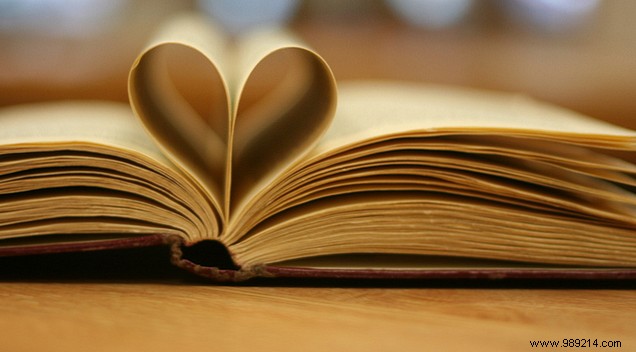
When Eliot first published The Harvard Classics I didn't expect one to necessarily read it cover to cover. He explained that the 51 volumes could be seen as six different, and largely independent, “Courses”. Each of these courses would illuminate the progress made in each area up to the 20th century. These “courses”, built from full texts, are:
The following is a massive abridged selection of the entire Harvard Classics bibliography. :
On top of the 51 volumes of the Classics is an additional 20 volume "Shelf of Fiction". These additional volumes include major works from The Tom Jones Story (Fielding), to David Copperfield (Dickens) among many others..
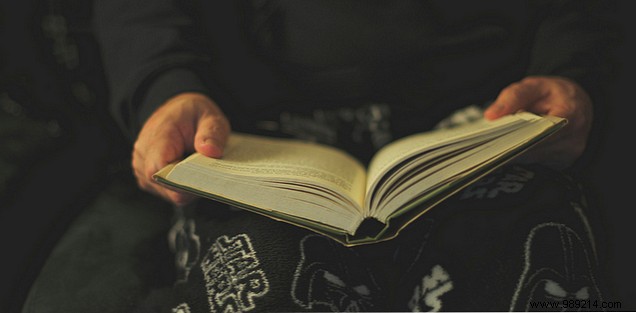
Despite the complete list of works within Harvard Classics , is not perfect To begin with, no author appears. And, as noted in The Five-Foot Shelf Reconsidered, neither Marx, Nietzsche, Aristotle, Aquinas, Hegel, nor Freud are mentioned.
However, this obviously pragmatic angle to the volumes can hardly come as a surprise. As mentioned above, Eliot is offering the works to create his idea of him of a "cultivated man". This is your collection, and a promotion of abstract thought is not at the forefront. If you want that, your 5 foot shelf will soon start to expand.
Nor can we expect "classics" of the last hundred years to appear, thus missing an immense section of progress in science. Fortunately, Eliot never intended this to be a complete overview of scientific developments.
Furthermore, when it comes to literature, although the texts included are difficult to argue with, some omissions, such as Homer's The Iliad It seems difficult to understand. There is also a wide spectrum of "modern literature" that should possibly be attached to the existing volumes:Proust and Kafka to name just two.
If these drawbacks make you want to stay away from this collection, you should consider a couple of alternatives. The Great Books of the Western World (many available for download here) is a slightly less renowned list. Harold Bloom's The Western Canon It also contains a huge (and hotly debated) reading list, but finding easy access to some of these is difficult.
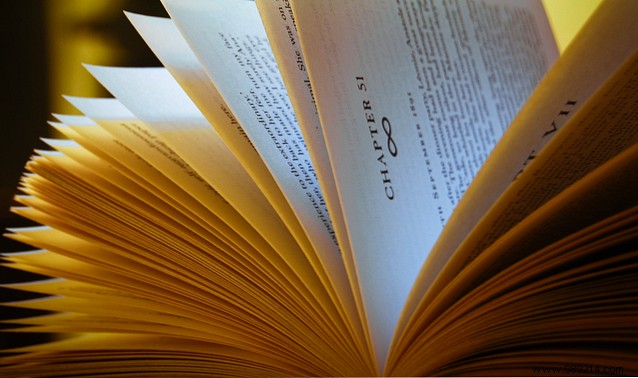
All this is not to say that Harvard Classics should be ignored At the beginning of this article, I talked about the importance of being able to choose what not read. Eliot has done this for us. And with this task, he has had to reject a large part of the literature that is often considered "indispensable".
If you want a condensed collection of "great works", many other greats will necessarily be excluded. That is precisely the point.
When Christopher Beha decided to spend a year reading. Harvard Classics From cover to cover (read his book here), he went through the 22,000 pages he had read and uttered, "All the knowledge in the world is a small reward for the things we cannot know."
There will always be more. There will always be a person who tells us to read one book over another. There will always be great books that we will never read.
Despite this, Eliot has still done an excellent job of putting together a delightful, arguable, but overall terrific person. reading list. A reading list that offers us, at no cost, years of excellent literature, with each element that shows society at a turning point, or simply the best literature. By taking advantage of Eliot's work, he will undoubtedly become a "cultivated" person.
Have you read any or all of the books included in Harvard Classics ? What recent works would you add to Eliot's reading list? Is there an alternative collection of jobs that you would recommend to your other MakeUseOf readers? Please let us know in the comments section below.